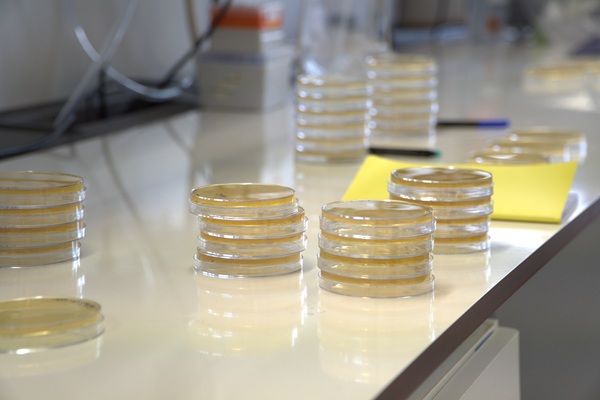Photo: ITQB NOVA
A new study reveals that harmless bacteria living in our upper respiratory tract inhibit Streptococcus pneumoniae, a significant agent of respiratory infections. The study opens up new possibilities for developing probiotic formulations, such as nasal sprays, with the potential to reduce colonization by this pathogen. Streptococcus pneumoniae, or pneumococcus, causes a range of infections from ear and sinus infections to more serious illnesses like meningitis, sepsis, and pneumonia. Children, the elderly, and immunocompromised individuals are among the most vulnerable to these infections. Each year, around 300 thousand children worldwide lose their lives due to this pathogen.
Currently, over 100 variants of S. pneumoniae are known, and no single vaccine can protect against all of them. Additionally, some of these bacteria are already resistant to antibiotics. Now, a new study published in the scientific journal Applied and Environmental Microbiology by the American Society for Microbiology reveals that certain bacteria living in our nasopharynx and oropharynx—behind the nasal cavity and mouth, respectively—can inhibit most variants of S. pneumoniae.
“Studying the frequency of colonization by S. pneumoniae, we noticed that some people who were not colonized by this pathogen were, however, colonized by other harmless bacteria, particularly Streptococcus oralis and Streptococcus mitis,” explains Raquel Sá-Leão, head of the Molecular Microbiology of Human Pathogens laboratory at ITQB NOVA, who led this study. This led researchers to question whether other microbes residing in our nasopharynx and oropharynx could limit the presence of S. pneumoniae.
To explore this possibility, the team evaluated the ability of microbes from swabs taken from 300 children and 300 adults without S. pneumoniae to inhibit this pathogen. “From the extensive list of microbes identified, we identified seven strains of S. oralis and S. mitis with strong inhibitory activity against S. pneumoniae,” reveals Sara Handem, one of the study’s authors and a researcher at ITQB NOVA. “These bacteria can prevent the formation of pneumococcal biofilms—groups of bacteria that cling to the respiratory mucosa, forming a community more resilient to the immune system and antibiotics,” she adds.
The anti-pneumococcal activity of S. oralis and S. mitis strains heavily depends on the production of small antimicrobial molecules called bacteriocins. “In addition to acting against most pneumococcal variants, bacteriocins are expected to induce less resistance than antibiotics and be more specific in targeting pneumococci while preserving the rest of the microbiota,” explains João Lança, another study author and researcher at ITQB NOVA.
“Our study presents a promising strategy, both to complement existing treatments and independently, to reduce pneumococcal disease. This approach is in line with World Health Organization recommendations that emphasize the importance of preventing colonization to combat disease and pneumococcal transmission,” concludes Carina Valente, also a study author and researcher at ITQB NOVA.
The team has already filed a provisional patent application covering pharmaceutical products containing these bacteria or their pneumococcus-inhibiting molecules (PT119647). The next steps will involve exploring the mechanism of action of bacteriocins and assessing the effectiveness and safety of these microbes and their products using in vivo models.
“We anticipate that our findings could lead to the development of new probiotic formulations, such as nasal sprays,” concludes João Borralho, another study author and researcher at ITQB NOVA.

